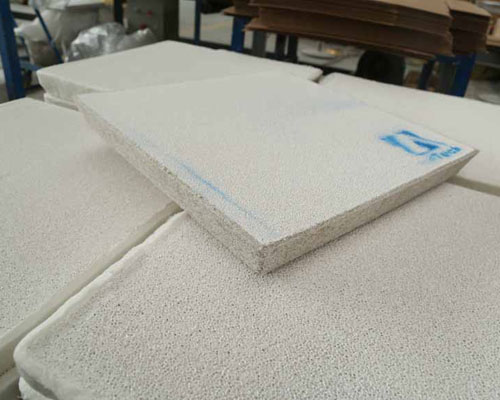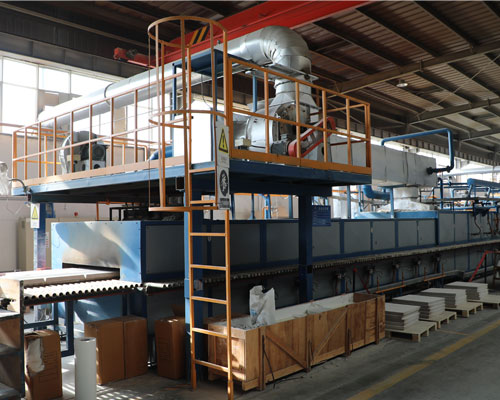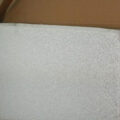The manufacturing process of the ceramic foam filter takes a three-dimensional network structure and porous foam organic foam as the carrier, invades the special ceramic slurry with thixotropy, and uses a special roll extrusion process to evenly coat the ceramic slurry on the skeleton of the carrier. Then dried and cured, and then fired at high temperature.
Since 2012, AdTech has been focusing on the development, manufacturing, and sales of high-absorbency ceramic foam filters (CFF) for aluminum alloy casting. AdTech’s foam ceramic filter plate technology has been widely used in the market of multiple series of aluminum alloy products: Micron aluminum foil cotton, printed PS board substrate, canned food, flexible packaging materials, rail transit, aerospace products, cable electrical conductors, etc.
The ceramic foam filter can effectively remove large inclusions in the molten aluminum and adsorb micron-sized inclusion particles, thereby improving surface quality, improving product performance, improving microstructure, and increasing output. It is widely used in the production of aluminum profile, aluminum foil, and aluminum alloy.

The quality of aluminum industrial ceramic foam filters in smelting aluminum is very important, which greatly affects the subsequent processing performance and the quality of the final product.
Therefore, all countries in the world attach great importance to the purification of aluminum melt. There are many reasons for aluminum contamination. On the one hand, during the smelting process, aluminum is exposed to the atmosphere in the furnace in a molten or semi-molten state, which is easily oxidized and easily reacts with water vapor. Hydrogen is easy to form various forms of non-metallic slag and coarse intermetallic particles.
On the other hand, part of the waste in the composition charge contains some non-aluminum impurities during the recycling process. Since the waste comes from process waste, waste from various processes in the factory, and waste outside the factory, the route is different, the composition is complicated, and the quality is poor.
These impurities are easy to cause bubbles and inclusions in the slab, thereby seriously affecting the purity of the metal melt, thereby further affecting the processing performance, mechanical properties, corrosion resistance and appearance quality of the product.
The ceramic foam filter manufacturing has the structural characteristics of specific reaction in terms of pore size, pore distribution, pore shape and porosity. The pore structure of the membrane is closely related to its filtration and transmission performance. Pore size and pore size distribution are the most important parameters of membrane structure, which directly affect the transfer characteristics of the fluid in the membrane and determine the separation and filtration performance of the membrane surface.


